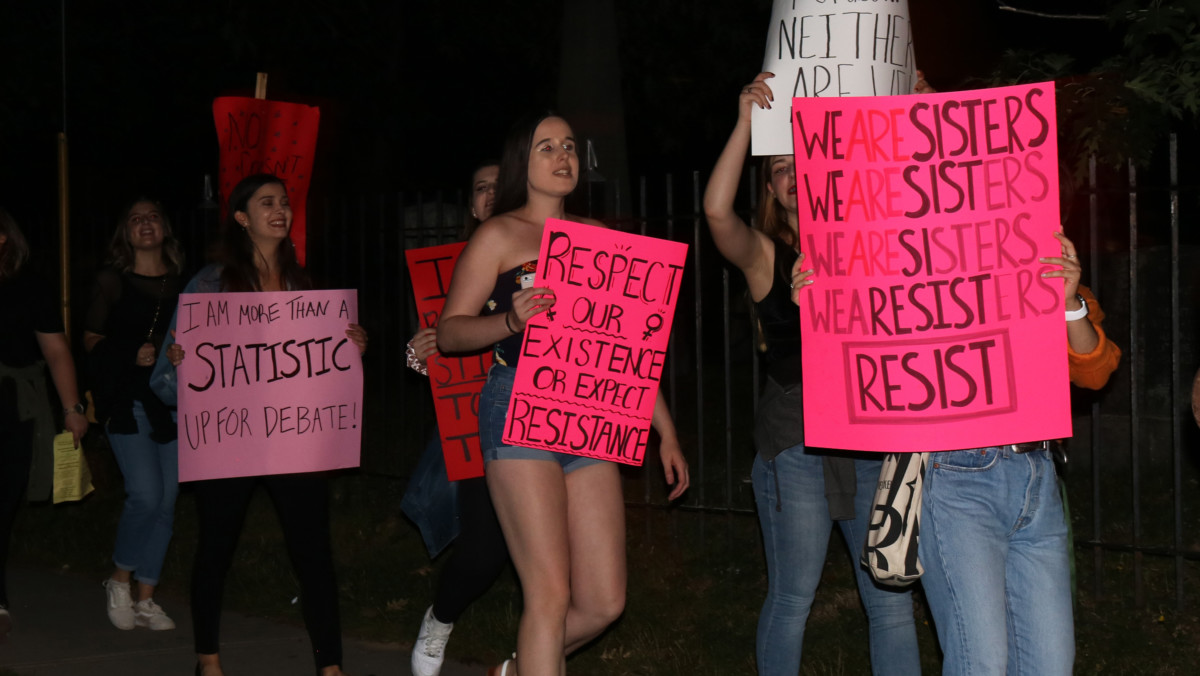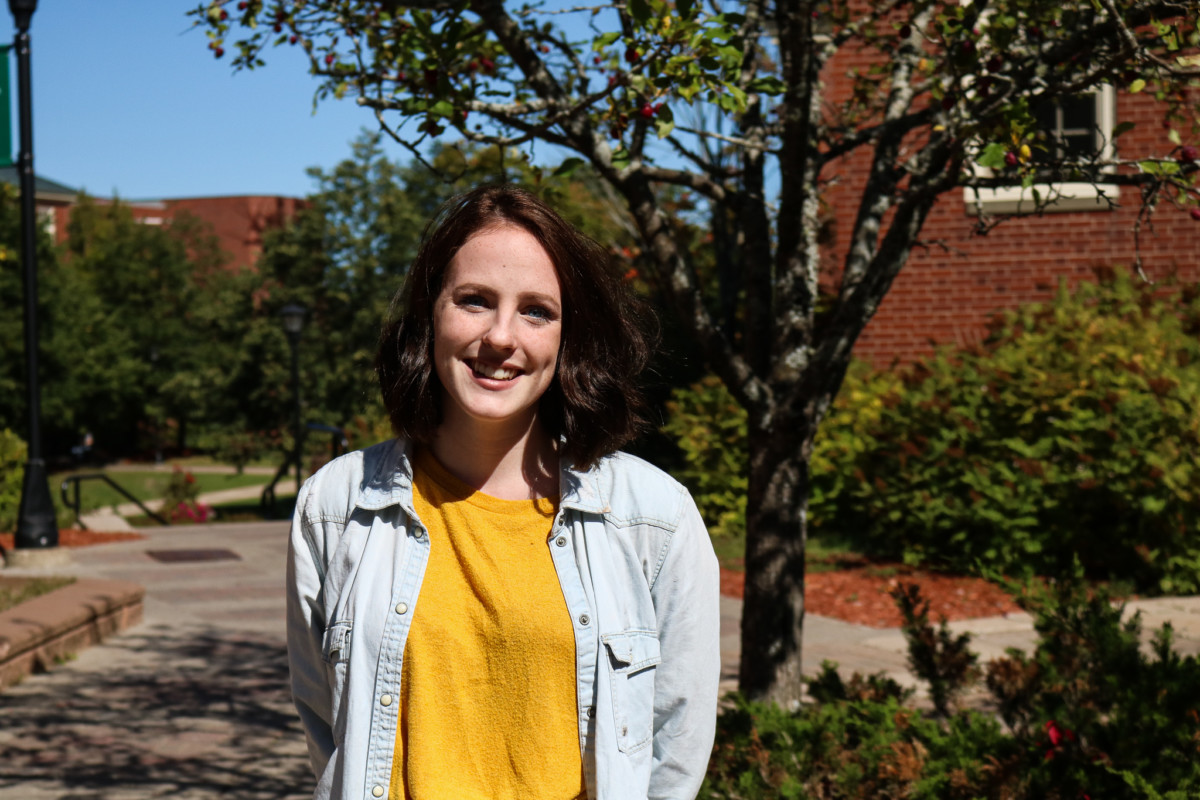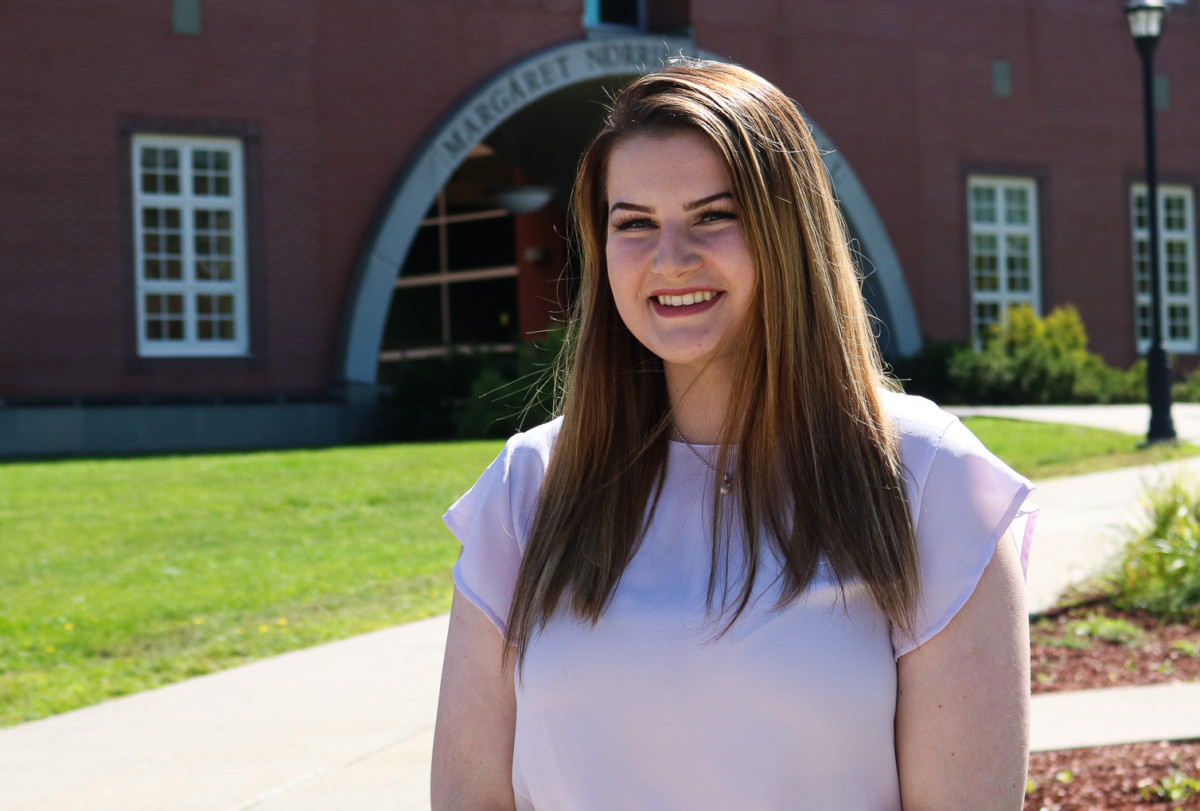
Note: A name correction was made on Sept. 26, 2019.
Take Back the Night organizer Andie Marks said one of the most important aspects of allyship is telling a survivor of gender-based violence, “I believe you.”
On Sept. 20, Frederictonians gathered to acknowledge and celebrate the theme of allyship and march in solidarity with survivors of discrimination, harassment and abuse, as part of the annual Take Back the Night march.
Marks, who’s also the community engagement coordinator for Sexual Violence New Brunswick, said the organization is often asked how friends can support loved ones who have experienced sexual violence. She said having an ally is one of the most important parts of healing because the trauma experienced is personal. It’s like something’s taken control over the survivor’s body.
“That added stigma on top of it feeling personal can feel different from, say, your house burning down. It’s still awful but doesn’t feel as targeted,” Marks said.
Megan Costain, co-chair of the St. Thomas University Student Union Sexual Assault Prevention Committee and a member of the Take Back the Night committee, conducted an anonymous survey on Take Back the Night’s Facebook page. She asked participants what allyship meant to them.

She said having a support system and being believed and listened to were some of the most common answers.
Key support like that, can be done by accompanying people to a hospital or police station or just sitting with the survivor, said Costain.
Sarah Kohut, the chair of the St. Thomas University Student Union Sexual Assault Prevention Committee said, “Sexual violence can often feel isolating…[Survivors] feel alone, as if people won’t believe them. Being an ally really helps combat that feeling of isolation.”

Kohut helps organize events and campaigns around campus to raise awareness about sexual violence. She said the Student Union Sexual Assault Prevention Committee goes through mandatory bystander training from Sexual Violence New Brunswick to make sure members know how to be a good ally and provides resources for survivors of sexual assault.

Kohut said the training session is a good way to start a conversation on how to break the stigma around sexual violence. She also said allies provide a source of comfort for sexual assault survivors.
“The more people we have believing survivors, the more people we have having a conversation about [sexual violence] and de-stigmatizing it.”
Marks said the march was a homage to the “myth and stereotype” that women are only sexually assaulted at night.
“We are taking back our right to walk alone at night,” Marks said.
“It definitely has an energy of empowerment.”
